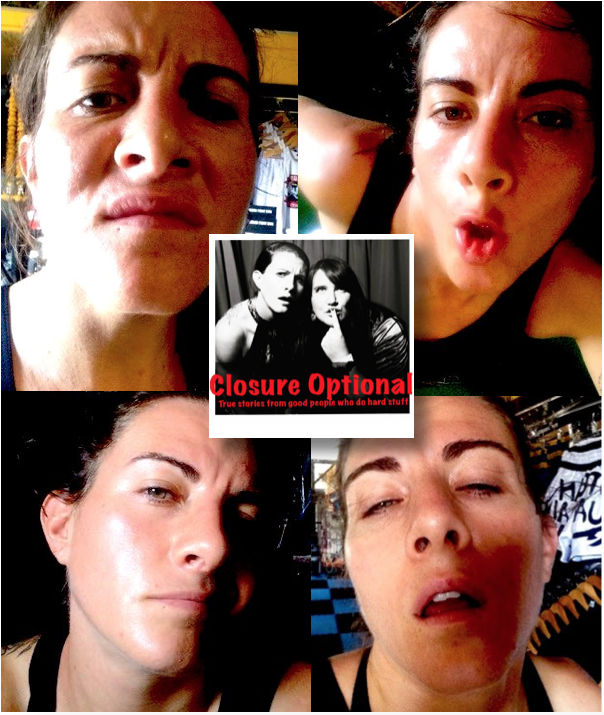
Closure Optional Ep. 48 – Ego States and Games
I’m on my own this week, finishing my ramblings on motivation as viewed through the Psychological Theory, Transactional Analysis. In this episode, I discuss the ways that we build a personality, how we use it to our advantage and disadvantage, and how we do, in fact, constantly play games with each other even if we claim we don’t. I discuss the existential purpose of boredom and the reason why you gave Dennis a wristy in the toilets at last years work Christmas party.
Reference LINKS:
- Games People Play, by Dr. Eric Berne
- https://www.slideshare.net/manumjoy/strokes-24081607
- http://www.ericberne.com/transactional-analysis/
- http://www.ericberne.com/wilder-penfield-biography/
- Gold Coast Laughs Festival
Please subscribe to Closure Optional here: itunes, Stitcher, Android, Email, or wherever you like to hear your podcasts and help this thing grow. If you’re on an Android device, I’ve found that Podcast Addict works the best. Thank you for listening, as always.
This podcast is made possible by Burleigh Heads and Broadbeach Physiotherapy, Heart Start Fitness Muay Thai and YOU, the listener, at patreon.com/lorna bremner.
Closure optional Theme is created by Kurt Chatfield.
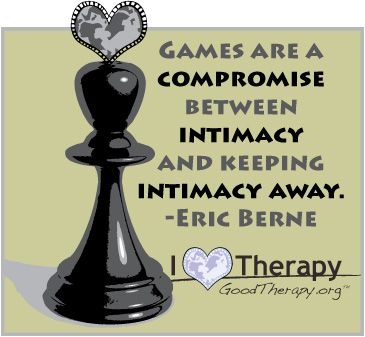
https://www.goodtherapy.org/famous-psychologists/eric-berne.html 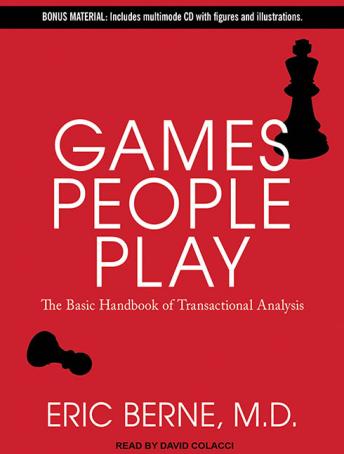
https://www.audiobooks.com/audiobook/games-people-play-the-basic-handbook-of-transactional-analysis/211373 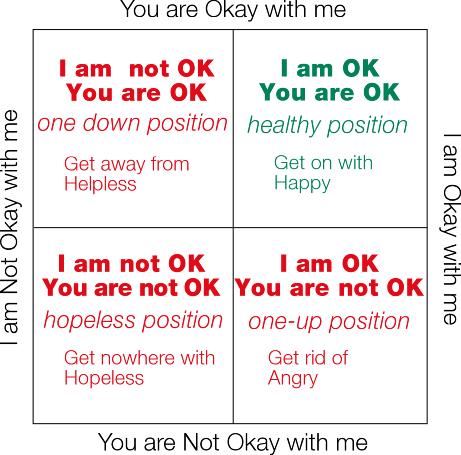
https://www.businessballs.com/building-relationships/transactional-analysis-eric-berne/ 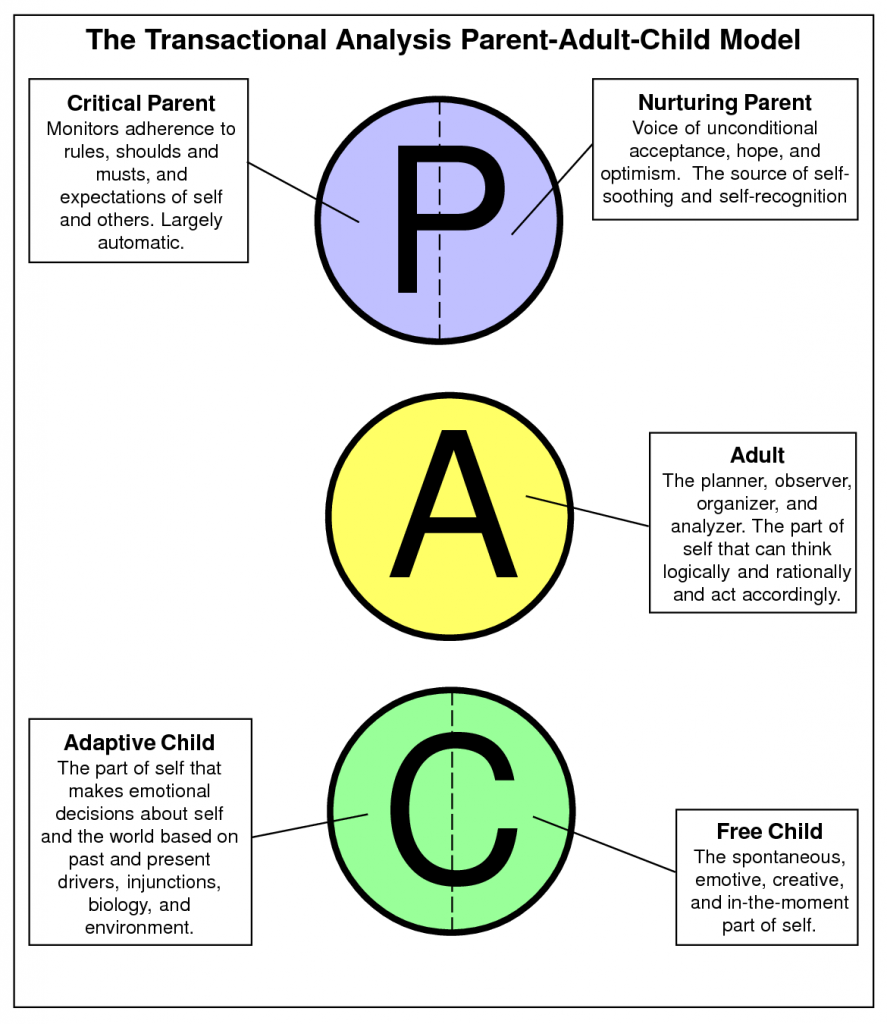
https://www.pinterest.com.au/pin/462393086715625122/ 
https://www.toolshero.com/communication-skills/transactional-analysis-eric-berne/
Rough transcript/ show notes:
- This week I’m continuing the discussion of human motivation as viewed through the lens of TA which is a method of studying interactions between people, in order to better understand our behaviour.
- If you haven’t yet, go back and listen to Episode 42 and 44 to get a background of what I’m talking about, then come back to this one. I’ll review everything a little bit, so it makes sense on its own but, you might get more out of it if you go back to those episodes first.
- Also, a friend of mine recently pointed out to me that I haven’t really considered or addressed any criticisms of the theory of Transactional Analysis in my excitement to understand this idea – and he’s got a valid point. This theory was developed in the 60’s by a guy who had 3 failed marriages and 4 massive heart attacks, one of which killed him, so he obviously didn’t have it all figured out.
- CRITICISMS:
- Hasn’t been rigorously tested scientifically, the basis for a lot of TA is the assumption that someone is behaving in a predictable way, and by doing that, the therapist can get caught in trying to label the predicable behaviour rather than dealing with the nuanced person in front of them.
- For example: Oh you’re playing this game right now, and your Child is in charge”. This doesn’t let the patient come to their own conclusions, rather it forces the behaviour to fit into a pre-defined model, and it’s easy to miss something important.
- It has been used to justify some very popular, but completely unscientific and wacky treatment methods, the example my friend found was that therapists were regressing patients back to their childhood and then spanking them or something to re-program their childhood states”. In saying that, just because some people took a theory and developed a fucking wacky protocol doesn’t mean that the theory itself is wrong. The THEORY of TA is profound and, I think, pretty useful in your own self-reflection, but if that’s true then yea, some methods of TA Therapy could be a bit fucked.
- Chogyam Trungpa Rinpoche was a buddhist teacher in the 70s who was also an alcoholic womaniser who spent most of his time introducing women to the bliss of god through the hole in the top of his penis – but even if he was a fucking maniac, that doesn’t mean that all the ideas inside Tibetan Buddhism are wrong, right? I don’t know.
- Another criticism is that TA comes from the point of view that everything you do comes from your experiences as a child and has little to do with your biology, so anything, including Homosexuality and Autism, can be unprogrammed. Obviously, what we know now about the brain, is that structural changes in the brain will have significant impact on behaviour – and those structural changes can be caused by both genetics and experiences, and to deny either aspect is just silly.
- I should be clear, that when I make these podcasts, I’m not saying that this is the only path to salvation and happiness – I’m more interested in breaking down an idea that you probably haven’t heard much about, that might help you start to reflect a bit more on your own behaviour and habits. TA is one of MANY theories on why we do what we do when we do it, and when he came up with these ideas in the 50’s it was groundbreaking at the time.
- And, a lot of his early ideas, particularly the idea of Games and ego states, which is the subject of today’s podcast, have contributed to the development of our modern behavioural therapies, and, personally, I think it’s really fascinating to watch the evolution of ideas over time. If it still rings true and is helpful, that’s great, if not, then isn’t it wonderful to examine the contents of someone else’s head?
- So, please take from this whatever you will, and if you’re in need of some help with your mental health, please do go see a professional, don’t just rely on the ramblings of someone who reads books then talks to herself about them for hours in a shed on the internet. I doubt you would be, but, you know, it’s worth saying I suppose.
- So, as I said at the start, TA is a method of studying interactions between people, in order to better understand our behaviour, which was developed by a psychiatrist called Eric Berne in the 1950’s. And basically everything I’m talking about today comes from one of his books on the subject, “Games People Play”.
- I’ll very quickly review the basic foundations of this theory but if you haven’t heard Episodes 42 and 44 yet, go back and listen to those first which go into a lot more detail.
- So in TA, each interaction between people is called a “transaction” because during the interaction we exchange a type of social currency, which is called a “Stroke’ – as in stroking a cat. The purpose of a transaction is to give and receive these strokes in order to get recognition that YOU EXIST.
- The foundation of this idea comes from observations in Developmental neuroscience. They have discovered – though some fucking horrific experiments – that as soon as a baby is born, it requires the physical touch of a nurturer in order to survive.
- Orphan Study
- Rhesus macaques (monkeys)
- Mice – Oxytocin Receptors and Nurturing
- Without this contact, the brain will not develop correctly and the result, in extreme cases, is apathy and then death. In the more moderate cases, at a minimum, sensory deprivation will cause severe behavioural and psychological problems in the future.
- They call this “Stimulus-hunger”; in the same way a baby gets hungry for food, they will cry out for physical stimulation in order to make sure their brain develops properly.
- Then, as the infant grows older, and is less dependent on its mother, the opportunities for physical affection become less, and so the baby learns to get stimulation in other, more complex ways. Now the baby learns to be satisfied with getting a “good job” instead of a physical pat on the back.
- And when they don’t get it, it becomes “Recognition-hunger” – so again, in the same way we need to be physically stroked to be a normal human being, we also need to be recognised by the people around us.
- So a stroke is simply put, a unit of recognition that someone exists, it can be physical or not, and it can be positive or negative.
- For example: the simplest positive stroke would be nodding at a stranger as you pass them on the street.
- And the negative version of the same would be that you nod at a stranger and they frown at you as you pass.
- This is still a transaction, an exchange of strokes, it’s just not the one you were looking for. Because they frowned at you, they did acknowledge that you exist, they just did it in a shitty way. But, if the person had just looked right through you and did nothing, that, that would be even worse.
- The reason for that is because the point of a transaction is to get recognised, and when you don’t get recognised at all, you aren’t satisfied, and are hungry for more.
- So, how you feel about the transaction will be dependent on the nature and quality of the strokes you give and receive – or the lack thereof. Engaging in social transactions satisfies your need for both getting a hug and getting a “Good job”. But we’re not really satisfied with a nod, or a wave are we?
- What happens after that? What do we do with ourselves when we’re waiting in line at the Post Office and have already established that each other exist?
- This is what they call, “Time-Structuring” and it’s how we, as a collective, pass the time together.
- Your job is a complex example of one of the ways that we structure our time. It’s predictable and routine, and the transactions inside it serve the dual purpose of stroking you and your colleagues, while contributing to the overall objective of the company.
- And your work Christmas party, is also a time-structuring activity, but now, the people you know well, and see everyday suddenly become stiff strangers standing around staring at the walls – until, of course, they get drunk enough to bypass their better judgements and suck each other off in the toilets.
- This, the staring at the walls, pre-fallacio, is what TA calls “Structure-Hunger” – it is, essentially, what the fuck do we do now? Boredom.
- This is a funny balance to me. I feel like the entire experience of living is just us drifting along the invisible pull of time, constantly bouncing between things we know, and things we don’t. The future and the past. New, old.
- We’ll seek a new experience to feel alive, then do it again because we like the feeling, and again to learn how to get the feeling quicker, but then it eventually makes the familiar and predictable, which eventually makes us bored, and that boredom kicks us into seeking a new sensation all over again.
- The human condition, and possibly all life in general, is a balancing act of structuring our time in the most satisfying way possible. Staving off existential hunger I guess, which sort of really just means death, I guess.
- So, as far as TA is concerned, any malnourishment in any of these three types of psychological hunger will lead to degeneration and problems within the others…
- STIMULUS HUNGER: If we’re desperate for stimulation, we will be creepy, overly affectionate or needy, which naturally pushes other people away, and the problem compounds until it’s unbearable.
- RECOGNITION HUNGER: If we’re desperate for recognition, we’ll start trying to impress people with bullshit like pouty selfies, grandiose lies, or whatever to grab the attention of others. This, naturally, is unsatisfying because you know it’s a ploy for attention, so you keep seeking more and the cycle repeats itself; you never get closer to yourself or anyone else.
- STRUCTURE HUNGER: And lastly, having to deal with unstructured time, like staring at the walls with our work colleagues, drives us to do unspeakably shameful things. We will literally do almost anything in order to avoid the horror of general boredom and meaninglessness, and when those things are socially destructive, isolating, and / or shameful, we become hungry stimulation and recognition and the whole thing repeats itself.
- So today, I want to talk about the ways that we tend to develop these types of hunger inside our transactions, how that can impact our motivations and behaviours, and some possible strategies to keep us psychologically nourished.
- Please bear in mind that I am not a psychologist, I’m just a person who reads books and needs to structure her time in such a way to get heaps of recognition in order to silence the ache of a lonely and confusing childhood. I hunted boiled eggs for Easter for god’s sakes, no wonder I’m a lunatic.
- So we’ve established that it is, more or less, a biological imperative for us to structure our time with either transactions or activities on our own, in order to stave off the hunger for recognition that we exist. Now one thing is critically important to understand about this though, we don’t need recognition that our existence is special, we just need to confirm that we exist. The need for it to be special is actually a form of recognition-hunger, but I’ll go into this in more detail soon.
- So according to psychologists, we tend to structure our time in 3 ways, which they call Programming. This is not your “mind-control propaganda social programming” that the conspiracy theorists are all raving about – this is a general structure of humans being in the world that is universal to our species. The content of the programming changes in different cultures, but the structure is inherent to the human condition. They are:
- Material Programming
- Task oriented activities, things that deal with the external world. Baking a cake, for example.
- Social Programming
- Your culture’s accepted rituals; good manners and small talk with people you don’t know well.
- Individual Programming
- Much more nuanced and dependent on the individual personality components that make you, you. This kind of programming appears after you’ve gotten through the socially programmed small talk and you have to start being a someone yourself, whatever that is.
- This is where we start to play Games – and it’s not in the sense that we’ve commonly heard in dating like “I don’t play games” – because unfortunately, whether you like it or not, you DO. Every day.
- Games are a predictable pattern of transactions between people who are both seeking gratification in some way from the game.
- Usually, the game is played mostly unconsciously, to a set of rules that are unconsciously accepted between the players and the gratification that either player is seeking from the game is also unconscious.
- Our role in the game is run by our Individual Programming, and usually the gratification that we’re seeking is just a confirmation of that programming – it’s our ego’s way of reminding us that “this is who you are, you’re always this way, and you’re never going to change”.
- Now this is not to say that we can’t change, in fact the entire idea of TA therapy at the start, and the more modern Cognitive Behavioural Therapies and Mindfulness Practices are in trying to help people identify our behaviour patterns and change any that aren’t helpful.
- So within our personality, TA suggests that we have 3 predictable patterns of being in the world, which they call Ego States. They are:
- Child
- Parent
- Adult
- They are different for everyone but modelled on our experience of ourselves and others as children. The aim of TA is to get into the Adult state as much as possible, which would be the modern equivalent of the poplar “Mindfulness” practice, where we aim to act from the HERE and NOW and not some destructive behaviour pattern you collected as a kid.
- This is not to say that ego states themselves are bad though – they all have their place in keeping us happy and social and productive, it’s when they are anti-social or self-destructive that we need to address them.
- Child – Playful, creative, fun / sulky, victim, helpless
- Parent – Nurturing, Caring, loving / critical and overbearing
- Developed over time to help us learn to navigate the world, to socialise properly with others, to protect ourselves from dangerous things and people. So they are useful, until they’re not.
- When you cut yourself, a doctor will give you some stitches and a lollipop, but once the cut’s healed, you have to take the stitches out. It would be silly to walk around with a stitches hanging out of your skin for the rest of your life.
- A problematic personality trait like, sulking when you don’t get your way, is like a set of stitches that you’ve never removed from your psyche. It solved your problem once, but it’s not going to solve your problems in the future.
- Life Positions:
- Im ok – you’re ok
- I’m ok – you’re not ok
- I’m not ok – you’re ok
- I’m not ok, you’re not ok
- Life Script – story about who you are, capable of, and who you will become.
- Stroke Filters
- Discounts / Confirmation Bias
- Personality Traits Reinforced by Others
- Personality Traits reinforced by your behaviour
- Expectations of yourself and others
- Keep things NORMAL – they give you a model of reality that feels safe, expected, rational. Even if they’re totally self-destructive.
- You hold on to this script and programming because it makes the unknown chaos of the world predictable and manageable. And when something contradicts with what you believe about yourself, you, unconciously, will go to great lengths to deny it.
- So, as tempting as it can be to blame the Patriarchy or the Government or our Parents or simply the fact that we have to go to work and wear clothes in public, none of these things are solely to blame for the state of our current mental health.
- The truth is, we, as individuals, am the least common denominator in all 3 types of programming. We can only get through about 1 minute of small talk, maybe 2 if we’re helping someone with a task, before we launch into a game to get some sweeeeet sweet gratifying recognition.
- The fact is, the majority of all social activity is in playing games, which means, that your INDIVIDUAL programming is in charge in ALL of these situations. If that programming makes you feel shitty, frustrated, lonely, tired, horny, happy, whatever – that’s how you live your life.
- The aim of games is to get as much satisfaction, in the form of strokes, from the people around you in order to pass the time without having to be too vulnerable.
- In the same way we have learned to accept a Stroke of recognition instead of our mother’s physical touch when we were babies, TA suggests that games are a substitute, and perhaps gateway for real intimacy.
- Real intimacy is hard to come by, as an adult, due to our necessary, but nervous and protective accumulation of a personality over time. Our personality is like a bumper car that we drive around in, banging into other bumper cars as we navigate the intricate race-track of games in our social worlds. Being intimate, would be the moment when you race around the track with someone for a while, then realise it would be heaps more fun to ditch the cars and make out in the bushes next to the track.
- Some Examples of Games:
- If it weren’t for you
- Players: Wife / Husband
- ROOT: Fear, both sides
- Advantages: W: doesn’t have to face fear of failure, doing new things. H: Is needed and secure.
- Existential: The world is scary/dangerous
- Why don’t you, yes But…
- Players: Gaggle of People
- ROOT: Insecurity/reassurance
- Advantages: W: never surrender. H: Is useful “just trying to help”
- Existential: Everybody wants to dominate me
- Why does this always happen to me:
- Players: Guys at work
- ROOT: Worthlessness
- Advantages: W: blame something/someone else, excuse for rage.
- Existential: The world is out to get me because I’m shit.
- Key to these games, negative ones, is that there is an ulterior motive – On the surface, it’s two Adults talking to each other, but underneath is a parent vs child scolding or seeking attention.
- The way to exit a game, is to notice the role you’re playing in the game, and stop contributing. So the easiest one is not to give a suggestion in Why don’t you, yeah but – have the confidence to simply say, “Oh shit, that is a problem” and leave it at that. Or in the case of “If it weren’t for you,” the spouse just says, “Have fun!” and either they will or they won’t, but it’s not a reflection of you.
- Notice the ulterior motives, and don’t gratify it. Then give the person a change to realise their own game, or let it play out on it’s own. This is often when we can laugh at ourselves and realise that we were being dicks. And that always brings you closer together – real intimacy.
- In the book, Dr. Berne says that “intimacy begins when individual programming becomes more intense and Social patterning and ulterior motives begin to give way”.
- It is so lovely because it’s rare, and takes a bit of work to get there. But, there’s nothing wrong with a challenge, obviously, it’s a great way to pass the time and avoid boredom, which is, as previously discussed, possibly, the whole point of existence anyway. I don’t know.
- So how do we get the confidence to periodically step out of the bumper car in the race-track game in order to make out with someone in the bushes?
- If the goal of human social interactions are to get recognition that we exist, it’s probably helpful to see if there are other ways, independent of games, that we can get confirmation that we exist.
- When you’re not starving, you have the capacity to nourish yourself with a variety of options that will satisfy you most, but when you are starving, you’ll cling desperately to anything that will keep you alive. When we do really counterintuitive or self-destructive things without thinking, TA suggests that it’s probably coming from a place of existential starvation, and the opposite of that is AUTONOMY.
- His definition of autonomy is this:
- Awareness – Immediate present moment
- Spontaneity – Go with the flow, roll with it, don’t get caught up in a pattern
- Intimacy – be vulnerable, open
- How do we fix it?
- Just having an awareness of the silly shit we do, and why we do it, can help us stop the programming in action.
- If we don’t like the way we react in certain situations, it’s likely that we’ve got some subconscious belief about ourselves that is being fed by continually playing that character.
- Take a second to breathe and step back for a second before you speak, and see if you can react in a different way.
- Trying not to get mad at ourselves for the dumb shit we do, rather try to understand what felt bad about it, and what felt good about it at the time.
- Accept that change is inevitable, and the more relaxed we can be when a change occurs, the more options we can see on the other side of it.
- If we’re looking for one single outcome, that we don’t get, instead of being a victim, its probably more useful to understand what feels like it’s missing. What need did that outcome serve? Are there any other ways to serve that need, or is the need itself problematic?
- Now again, I’m not a psychologist or anything like it, and I have no idea how to apply these principles to my own silly programming that I constantly fall into. But i’ve been finding that the more I read about it, the funnier my silly behaviour gets, and I tend to take myself and other people a bit less seriously. Which makes me feel better about being a maniac, and I find it’s easier to relate to other people on a human level.
Podcast: Play in new window | Download
Subscribe: Apple Podcasts | Google Podcasts | Spotify | Email | RSS | More